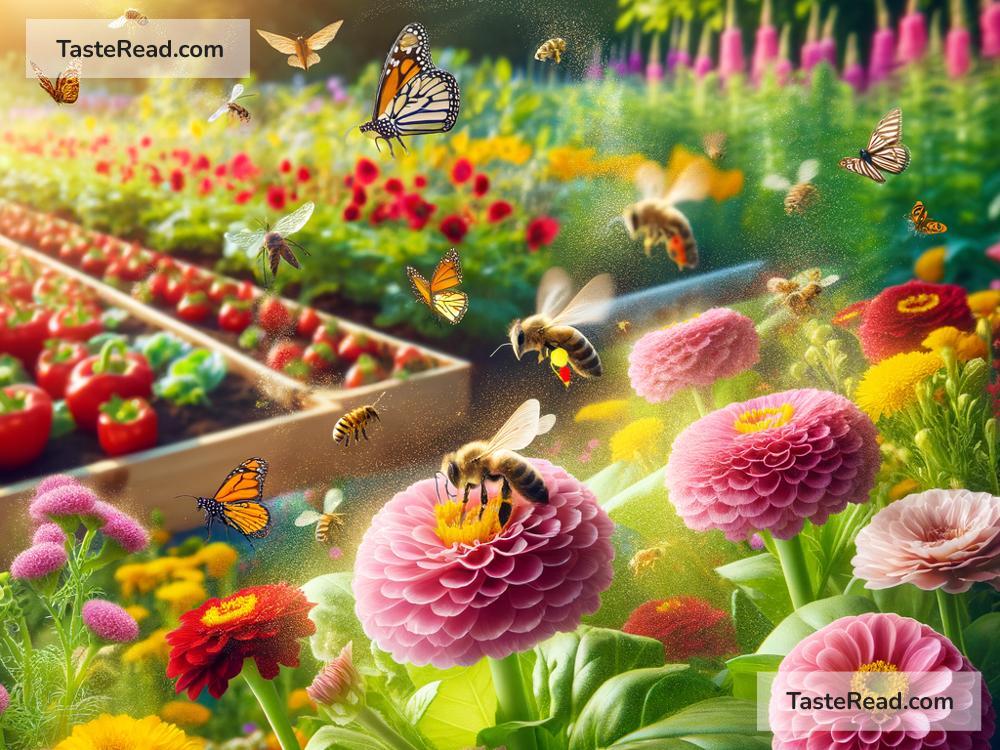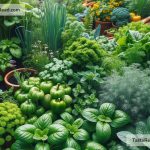Exploring the Role of Pollinator Gardens in Food Production
In the beautiful dance of nature, there’s a vital interaction that often goes unnoticed, yet plays a crucial role in the food we eat every day. This interaction involves pollinators – the bees, butterflies, birds, and other creatures that transfer pollen from one plant to another, helping these plants to produce fruits, seeds, and vegetables. Without these hardworking pollinators, our plates would look a lot emptier and less colorful. That’s where pollinator gardens come into the picture, serving as a beacon of hope not only for these tiny helpers but also for our global food production system.
What Are Pollinator Gardens?
Simply put, pollinator gardens are designed spaces—whether large fields or small patches in a backyard—that provide a habitat rich with flowers, plants, and shelter needed for pollinators to thrive. These gardens are planted with a dual purpose: to offer a safe haven for pollinators and to support local food production by ensuring plants are pollinated.
The Role of Pollinators in Food Production
Pollinators are like nature’s little matchmakers, bringing together the male and female parts of flowers. Without this matchmaking, plants wouldn’t be able to produce fruits or seeds. It’s estimated that around 35% of the world’s food crops rely on these creatures for reproduction. This includes many of the foods we love and depend on, like apples, strawberries, almonds, and even coffee. So, it’s easy to see why pollinators are critical to our food system.
However, pollinators are facing challenges like habitat loss, pesticide exposure, and climate change, which threaten their survival and, subsequently, our food supply. This is where pollinator gardens can make a big difference.
Benefits of Pollinator Gardens to Food Production
-
Increased Food Production: By providing a habitat for pollinators, gardens can help increase the yield of fruits and vegetables. A single bee colony can significantly impact crop production through efficient pollination.
-
Biodiversity: Pollinator gardens support a wide variety of plants and animals, creating a healthy, biodiverse ecosystem. This biodiversity contributes to more resilient food crops that can better withstand pests and diseases.
-
Sustainability: These gardens encourage a more natural form of pest control and fertilization through the activities of pollinators. This can reduce the need for harmful pesticides and chemical fertilizers, leading to more sustainable food production practices.
Starting a Pollinator Garden
Creating a pollinator garden is easier than you might think, and it’s something that anyone with a bit of space can undertake. Here’s how to start:
-
Choose the Right Plants: Select a variety of native plants that flower at different times of the year. This provides pollinators with a continuous source of food. Plants like lavender, sunflowers, and wildflower mixes are great choices.
-
Say No to Pesticides: Chemicals used to kill pests can also harm pollinators. Opt for natural pest control methods and be mindful of the products you use in your garden.
-
Provide Shelter: Apart from plants, pollinators need places to nest and take shelter from predators. Leaving some areas of your garden a little wild can offer them the perfect habitat.
-
Water Source: A simple bird bath or a shallow dish with stones (for landing) can serve as a water source for pollinators.
Conclusion
Pollinator gardens are a beautiful and effective way to support the health of our planet and the sustainability of our food systems. They remind us of the interconnectedness of nature and our role within it. By creating spaces that support these tiny, yet mighty, creatures, we’re not only beautifying our environment but also contributing to a more sustainable and food-secure world. Whether it’s a sprawling wildflower meadow or a few planters on a balcony, each garden is a step towards a brighter, more resilient future. Let’s roll up our sleeves and plant the seeds of change, one garden at a time. Not only will the pollinators thank us, but our planet will too.


